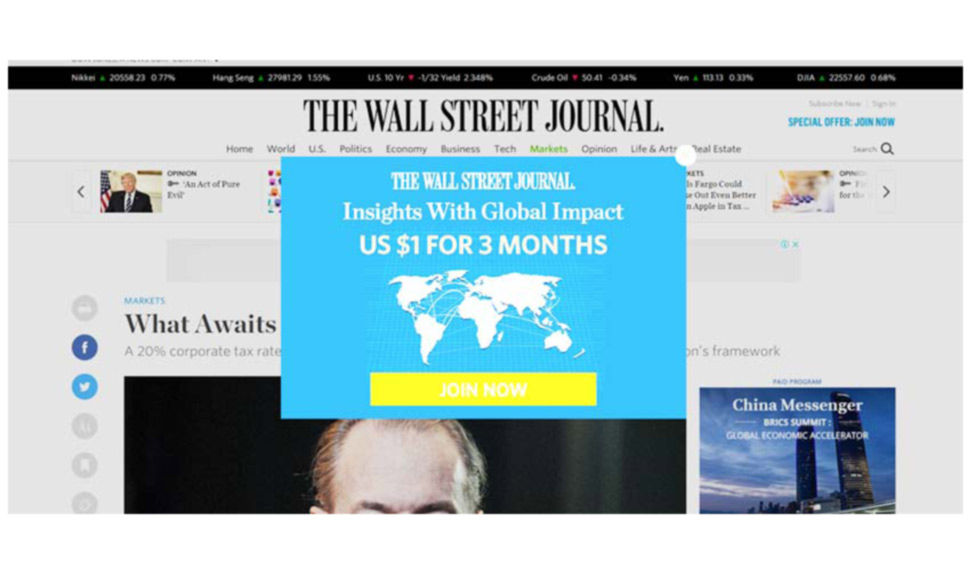A Bloomberg report on Monday, has triggered dozens of follow-up stories all saying roughly the same thing: Google will shortly tweak its news search engine to appease publications who expect readers to pay before viewing their content.
Millions of readers who daily use the search engine to access print and online news sites, have generally been able to read the stories that pop up on top of the search results. This is because Google bent on publishers to ensure that searchers could at least read the first story they clicked on one site, for free. There are some publishers—notably financial media like the Wall St. Journal and the (London) Financial Times—who even today send out a pop-up obscuring the result of your search, unless you shell out a subscription immediately, for one week's or one month's viewing which could range from $1 to $ 30.
What Google used to do—till now—was to slightly downgrade such sites protected by a pay wall and ensure that news sources that freely allowed access to their stories appeared higher up in the results. So chances were you could read the top few news links without a hitch. Sounds reasonable, one would think. After all, we the millions who go to Google for all our information and news are the ones who sustain its business and enable it to attract advertisements to its sites.
But no; in the new skewed priorities of Google, it has decided to appease publishers who demand a subscription for their site . It has decided to do away with its policy of " first click free" for searchers and has reportedly assured news organisations that those who operated a pay wall would be listed along with those who did not, without any bias. And it will enter into revenue-share arrangements with publishers who charge searchers for viewing their content. Cozy, very cozy.
Our own, Sundar Pichai, Google's CEO is said by Chief Business Officer Phillip Schindler in the Bloomberg report to be "very closely involved in a number of publisher discussions... The wonderful thing about Sundar (is), he is a news geek."
So am I. But I am guessing lakhs of Google premis in India will feel badly let down, not to say, annoyed , if they do a news search, click on a headline they like to read and then find a pop up banner which says in effect: "Sorry! Pay first, read later!" If as promised (or rather threatened) Google goes through with its surrender to pay wall publishers, we can expect to waste a lot of time with futile searches that are no longer free. If sites don't want their stuff to be read for free, they have a simple solution— tell Google NOT to list you in searches. But no, they want to have their cake and eat it too. They ask to be indexed by Google search engines—then sneak in their NoGo sign.
If I remember right, the Google news search tool is the work of another great Indian --Krishna Bharat—whose innovative algorithm continues to fuel the application. The unique qualities of Bharat's automated tool to scour tens of thousands of news portals and come up with the results you were looking for, have somehow been diminished and demeaned by Google's latest crass descent into commercialization.
Yes, make money from our searches, Sundar, but in the process, don't bite the millions of ordinary hands that feeds the entire search business.






